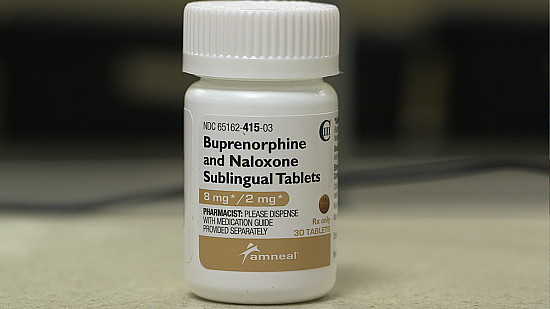Recovering from addiction during a time of uncertainty and social distancing

The COVID-19 crisis has created a time of uncertainty and anxiety for people around the world. Health professionals and other hospital staff are working around the clock to reduce and prevent the harmful consequences of the virus's spread. Many people are uneasily wondering how they will manage their existing health problems when the support systems they normally rely on have been altered or eliminated. During this time, anxiety can cause an uncomfortable feeling in the pit of the stomach. It also can create a sense of behavioral paralysis and disengagement from daily tasks and obligations. This distance and sense of dread can make self-care very difficult.
Addiction might be especially difficult to manage during the COVID-19 pandemic
A history of addiction and its psychiatric comorbidity might increase risk for COVID-19 harm. COVID-19 also might create conditions that threaten recovery. People in recovery often require daily interaction with care providers to access needed medication, such as methadone or buprenorphine. Others maintain their recovery through ongoing therapy and/or involvement in mutual help intervention groups. So, although addiction thrives on individuals' vulnerabilities, such as loss of health, loss of a loved one, or loss of a job, recovery from addiction often requires relying on supportive healthcare and social networks. The COVID-19 crisis and the importance of social distancing create barriers against these sources of support.
Social networks are particularly important during recovery from addiction
This means that during this unprecedented period of social distancing, we have to identify ways of connecting with others to garner and give support without being in their physical presence. Providers around the world are exploring new options for telemedicine, which provides one pathway of connection. Others are making self-help tools freely available. Some mutual help organizations are exploring ways to move their experience online. Notably, evidence from a recent Cochrane review suggests that peer-led Alcoholics Anonymous/twelve-step and professionally-delivered treatments might provide a useful pathway to abstinence. There are many pathways to recovery maintenance, and these all represent important possibilities.
What are some specific recommendations for maintaining recovery during a time of social distancing?
First, it remains important to have a plan for recovery, and to diligently work the plan. Your plan should anticipate what you expect might happen, including experiencing complicated emotions. Remember, emotions will pass and your plan should help you move through challenging ones.
Second, rely on your escape and avoidance skills by identifying alternative activities that respect social distancing, but conflict with addictive behavior. Such activities might include practicing mindfulness and relaxation, getting exercise, learning new skills, and communicating your goals and activities with loved ones and people who support you.
Third, activate supportive social networks. This might involve greater use of reliable social media sources for staying connected with apps such as FaceTime, Duo, and Skype, or just using the telephone. Make your needs clear to yourself and identify people who can help with those needs.
Fourth, identify paths for telemedicine with a care provider — or support from a mutual help sponsor. Many therapists and sponsors are offering remote sessions for the duration of this crisis. But, remember, taking home medications to manage addiction needs to be considered carefully. People at a safe place on the recovery path are the best candidates for taking home medications; those in a riskier place should continue to receive their medication with supervision or social monitoring.
During any crisis our resilience is tested
Resilience is the capacity to withstand and manage challenges. Proactive measures to protect health will build resilience, and help people avoid relapsing into harmful addiction-related behaviors. If a relapse happens, it is important to keep in mind that long-term recovery remains within reach. Relapse is a common feature of recovery, and it does not prevent someone from entering recovery again. Invest in yourself by using self-help tools. Reach out for help from professionals, a social network, or mutual help groups — from a distance — when you need it.
For more information, listen to our podcasts and see our Coronavirus Resource Center.
About the Authors

Howard J. Shaffer, PhD, CAS, Contributor

Debi LaPlante, PhD, Contributor
Disclaimer:
As a service to our readers, Harvard Health Publishing provides access to our library of archived content. Please note the date of last review or update on all articles.
No content on this site, regardless of date, should ever be used as a substitute for direct medical advice from your doctor or other qualified clinician.















